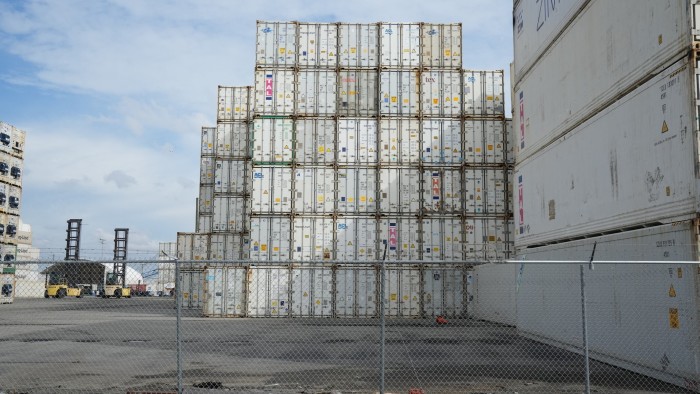Unlock the White House Watch newsletter for free
Your guide to what the 2024 US election means for Washington and the world
Rising trade war fears in the wake of the election of Donald Trump have sent global companies scrambling to make their supply chains more resilient and transparent.
Eighty-five per cent of the 1,700 large company executives surveyed by The Conference Board late last year said they were planning to make significant changes to their supply chain, up 15 percentage points from last year, and significantly higher than right after the Covid pandemic.
Their focus on supply chains comes alongside growing concerns about the future of global trade. Forty-five per cent of global CEOs in the Conference Board’s report cited intensified trade wars as the leading geopolitical conflict risk for 2025, double last year’s tally of 19 per cent. US executives were particularly worried, with 47 per cent mentioning trade wars as their biggest concern.
“There were a lot of executives, particularly CEOs, focused on changing their supply chains . . . It’s returned to the top of the agenda,” said Dana Peterson, The Conference Board’s chief economist.
“It’s not only the new administration and concerns about tariffs, but also the fact that the trade wars between the US and China picked up in 2024.”
The National Retail Federation reported last week that its projections show that traffic to US container ports was up nearly 20 per cent year on year in December and 10 per cent in January as importers rushed to get cargo in ahead of tariffs and a now-settled potential dockworker strike at critical east coast ports.
US policymakers are also digging into supply chain risks. Researchers at the Federal Reserve Bank of Richmond wrote in a paper this month that supply chains have become central transmitters of shocks and warned that improving resilience could raise prices.
The Conference Board survey found that south-east Asian executives were most focused on supply chains, with 90 per cent planning to make changes.
The most common planned supply chain improvement was to step up the use of artificial intelligence to improve performance and tracking, mentioned by 34 per cent of CEOs, followed by vendor diversification.
The share of global executives making plans to move suppliers closer to customers through localisation and reshoring more than doubled year on year to 26 per cent. Such moves were especially popular with Chinese executives, who cited them 38 per cent of the time.
“It’s about self-sufficiency,” Peterson said.
Mentions of supply chain risks in corporate presentations also rose in the fourth quarter of 2024 and in January, although they have not equalled the heights reached during the pandemic, according to data group AlphaSense. Technology and energy groups were particularly likely to mention the need for diverse suppliers to help avoid tariffs.
French utility Engie told analysts in October that “the work that we have done to diversify our supply chain is now bearing fruits, whereby we are able to source solar panels, for example, not from China, and that’s what we are using today in the United States”.
Global executives also told The Conference Board survey that their greatest economic fear continues to be a recession or economic downturn, although the share mentioning it dropped to 38 per cent from 47 per cent last year.
Read the full article here




